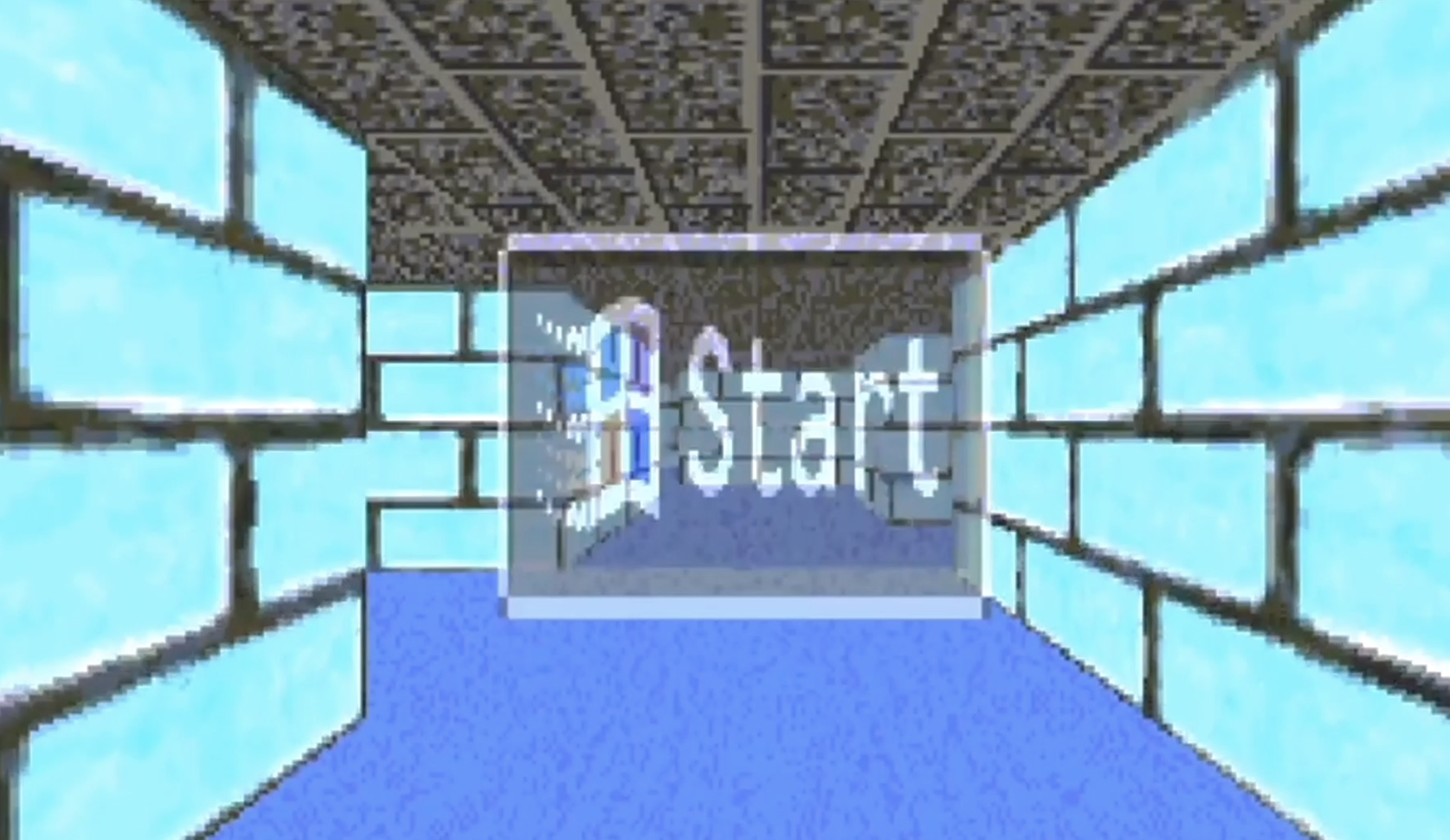A Trick Of The Light was the final competition category in LSFF’s four showcases of promising short filmmaking talent. Centred on AI manipulation and concepts of illusion, projection and memory, this programme was tied together through a study of the fallible nature of the visual image – within the functional world of the film narrative and addressing the very fictionality of filmmaking itself.
A Trick Of The Light was the final competition category in LSFF’s four showcases of promising short filmmaking talent. Centred on AI manipulation and concepts of illusion, projection and memory, this programme was tied together through a study of the fallible nature of the visual image – within the functional world of the film narrative and addressing the very fictionality of filmmaking itself. The directors in this category reflected the film festival’s practice of representational programming, (screened in the BFI’s largest screen NFT1), and felt like the ideal conclusion to the various notes of the festival I had experienced so far – a practice of exhibiting unusual and discursive voices from across the globe at London’s most renowned venues.
Opening with Scenic View (2023) by Maija Blåfield, which harnesses AI technology in manipulating the physicality of an ancient forest in Finland, ‘Trick Of The Light’ promised to be rife with strange and inciting cinema. Filmed in the style of a nature documentary, Scenic View challenges the notions of cinéma verité by provoking its audience to re-examine the ethical contracts of ecological realism on-screen.

It suggests a new form of cynical viewership that is actively critical of politicised environmental media within documentary film, a paranoia surrounding artificial filmmaking that was expertly mirrored by Rachel Maclean’s DUCK (2023), a ‘classic spy thriller’ starring a deep-fake Marilyn Monroe and a deepfake Sean Connery. Using sound distortion and embracing the unrefined seams of AI tech, DUCK becomes an increasingly surrealistic and bizarre nightmare, at once hilarious and completely unnerving, with an unforgettably lurid aesthetic. This transmutative capacity of cinema was developed in the re-animation of Flyby Kathy (2023), a celluloid archive story unravelling the lost figure of adult actress Kathy Harcourt through synthetic record, a devotion to the conjuring magic of material film and the reverie of personal recollection.
Transference memory was plunged further into within Isabelle Tollenaere’s meditative The Fruit Tree (2022) a drifting vignette of a young woman at a house viewing in California City, reminiscing on her youth. This film particularly felt impressively sophisticated and evocative, and Tollenaere’s delicate comprehension of architecture within her cinematography becomes so lyrical in nature; confidently allowing her filmic compositions to speak volumes against a determined eerie silence. Hannah Renton’s Love is Free (2022) also adopted these ideas of formative memory, within a film staged over several years and haunted by the exacting recollections of childhood trauma. In an unlikely turn, the final film of the evening was Apostles of Cinema (2022), by Cece Mlay, Darragh Amelia, Gertrude Malizana and Jesse Gerard Mpango, examining film pirating and ‘over-dubbing’ in Tanzania.
What emerges is a culture of profound cinematic appreciation, hinged on the sound mixing of ‘DJ Black’ – who dubs international films in Swahili for his audiences, interpreting events with his unique spin and charming audiences in live dub performances - complete with popcorn and internationally specific cinema showcases. This underground culture of film circulation presents a new ‘exhibition circuit’, - one that scandalises copyright but simultaneously evokes true film preservation and appreciation.
Witnessing these habits of illicit Tanzanian programming exposes the often-discreet work of European film curation and emboldens the notion that a film can become truly anything within an effective position in culture. ‘A Trick Of The Light’ suggests a sense of wonder and magic, but this programme pointedly reveals the structural nature behind the illusion of cinema, like a magician from behind a curtain – film as material forms, as living archives, potent with psychodynamic composure and inherently scored with intimately human nostalgia.

Cinema Mentiré’s shorts contribution at the ICA was a riotous celebration of the cultural hummings of the internet in all is weird, wonderful imaginings and darker neuroses. A love letter to the benevolent gods of the digital age, they resurrected for a delighted audience the various cults, clips, shitposts and art forms online media has produced throughout its tenure.
From self-made YouTube diaries, to google maps, WikiLeaks and cat memes, the vast array of films sourced culminated in an honestly beautiful love letter to the patron saint of our age, ‘Señor Internet’. Cinema Mentiré is a collective based in London dedicated to screening rare and unique Latin American films, and their debut programme for LSFF had to be one of their most experimental and innovative yet. The untapped potential of digital cinema mirrored the shorts format with films such as Molly Soda’s I want to be alone (2023), a project composed of annually recorded layered musical episodes, and Culture is Business – Opera Loop by Elena & Daniela Solis, a fascinating sound piece collated in repetitive real-time on screen from randomised Instagram feed clips, sense-making through refined selection the flood of visual content we constantly wade through in-app. Internet (2013) by Sonia Marotta & Dadalú carried on this practice of curational media – expressing through collaged tumblr posting, webcam footage and meme-bits the highly conservational relationship we foster towards our own pages and posts, positioning the online profile/blog/timeline as a genuine space for radical artistic practice.

The malevolent uncanny of AI technology was also investigated within Homenaje a la obra de Philip H Gosse (2020), alongside the sentimental/harrowing potentials of digital-mapping in Carpeta Fotos (2020) by Florencia Vallejos, and Keiichi Matsuda’s Hyper-reality (2016), balancing a vision of the internet as intimate friend, with the burgeoning malevolence of evolving data collection and surveillance tech. Cinema Mentiré further paid homage to the various eras of digital media - through the wonderfully janky coding of El Interne, and finally in grand tribute to the joy of meme culture – the online space as an archive for the ridiculous and naïvely entertaining. Watching Amor Por Internet and Email Me, both relics of cultural dance performance and song, felt like something you might discover down a YouTube rabbit-hole, magnified tenfold to a sold-out screen at the ICA.
I was impressed to witness a host of directorial approaches, genres, and tones flow through a solid run-time, complimented by thoughtful word-art zines and an intuitive text-to-speech introduction. There was an immense sense of generational camaraderie within the audience – rarely do I see a contemporary programme designed with such a wise curational eye, and like any good doomscroll, I could have continued watching for hours. Traversing the sentimental and deeply disturbing, these films opened up the internet as an immeasurably vast image archive – one that you couldn’t help but be in awe of. in Cinema Mentiré’s own words; ‘dear internet, I love you forever. take care (of yourself and us).’

Lucy Peters is a film programmer and curator from Brighton, researching and exhibiting experimental/female directed cinema.
Her most recent work 'Female Rebels of the Avant-Garde' was presented at the BFI Southbank and the University of Sussex, alongside curational projects at Genesis Cinema and screenings from her independent exhibition initiative Electric Blue Cinema @electricbluecinema